Syria never used chemical weapons despite terrorists' threats: Deputy FM
Syrian Deputy Foreign Minister Faisal al-Mikdad says Damascus has never used chemical weapons in its war against foreign-backed terrorists and it will never use any such banned munitions in the future.
The high-ranking Syrian official made the remarks at the signing ceremony of a book at the al-Assad National Library in capital Damascus on Sunday evening. The book's title in English is “Syria and the Chemicals with Facts and Documents,” which has been written in Arabic by lawmaker, Dr. Ahmad Abdul-Salam Mar’ai.
Mikdad, who heads the National Committee on Implementing Syria’s Commitments according to Convention on Prohibition of Chemical Weapons, affirmed that his country’s decision to join the convention was made “freely and willfully within framework of its sovereignty, independence and response to the developments of situations in Syria, the region and the world.”

Syria surrendered its stockpiles of chemical weapons in 2013 to a joint mission led by the US and the Organization for the Prohibition of Chemical Weapons (OPCW), which oversaw the destruction of the weaponry. Damascus has consistently denied using chemical weapons over the past years of conflict in the country.
Western governments and their allies, however, have never stopped pointing the finger at Damascus whenever an apparent chemical attack takes place.
Elsewhere in his remarks, Mikdad said using banned white phosphors munitions by the US-led military coalition in Syria’s troubled eastern province of Dayr al-Zawr earlier this month was another evidence showing that the current US administration and the previous administrations resort to use any weapon that might serve their interests.
For his part, Dr. Mar’ai said his book, which is in fact his PhD thesis, came as a modest contribution to disclosing the facts in the face of a misleading campaign that targets Syria, accusing it of using chemical weapons during its seven-year-long war against terrorists.
He added that the book, which covers both theoretical and legal aspects of the subject, concluded that the Arab country had fully adhered to the obligations of the Convention on Prohibition of Chemical Weapons due to its belief in the equality in sovereignty for the states and in the support and respect for the joint collective values of the international community, including the international peace and security.

In April 2017, a suspected sarin gas attack hit the Syrian town of Khan Shaykhun in the northwestern province of Idlib, killing at least 80 people. Accusing Damascus, the US then launched nearly 60 Tomahawk cruise missiles at a Syrian air base, taking the lives of about 20 people including both Syrian soldiers and civilians.
On April 14, the US, Britain and France launched a coordinated missile attack against sites and research facilities near Damascus and Homs with the purported goal of paralyzing the Syrian government’s capability to produce chemical arms. The strike came one week after an alleged gas attack on the Damascus suburb town of Douma.
Western countries have blamed the incident on the Syrian government. Damascus rejected the accusations as “chemical fabrications,” which were made by the terrorists themselves in a bid to halt pro-government forces’ advances.
Damascus said that the so-called Jaish al-Islam Takfiri terrorist group, which has dominant presence in Douma, was repeating the accusations “in order to accuse the Syrian Arab army in a blatant attempt to hinder the Army’s advance.”
US House passes bill targeting charities and pro-Palestine groups
Hezbollah attacks Israeli forces after Lebanese homes blown up
World leaders, states hail ICC arrest warrants for Netanyahu, Gallant
MP: US accountable for possible Israeli 'foolishness' to attack Iraq
VIDEO | Israeli policies strangle Palestinian agriculture, economy
Iran's president offers condolences to Pakistan over terrorist attack
Canada’s Yukon town council at standstill over refusing oath to King Charles
Yemen's Houthi calls for jihad to protect Palestine against Israel


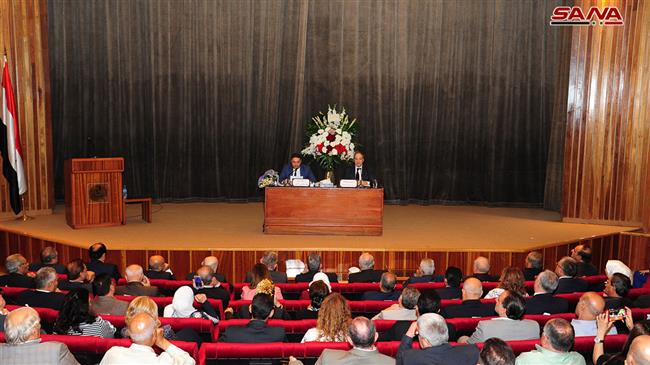

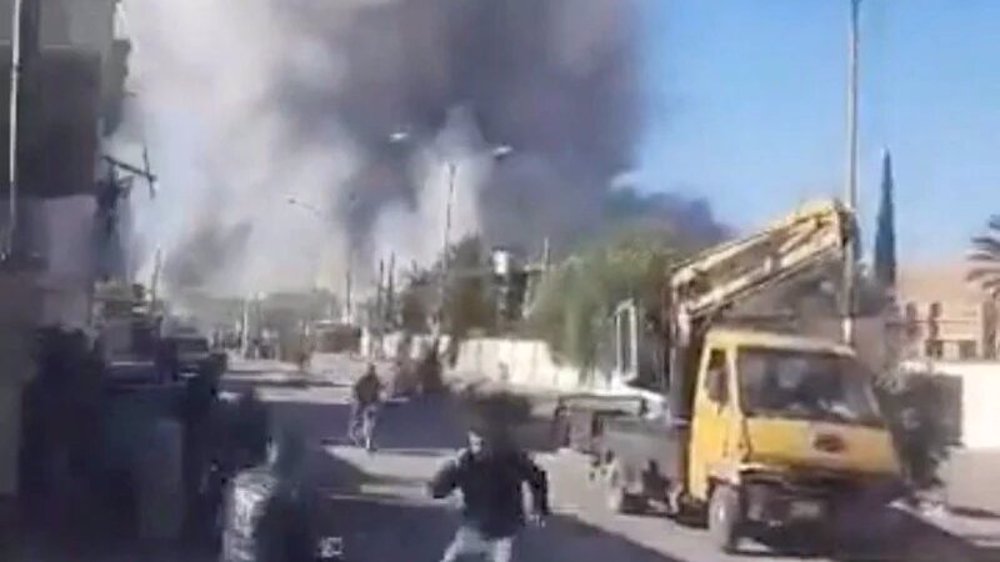
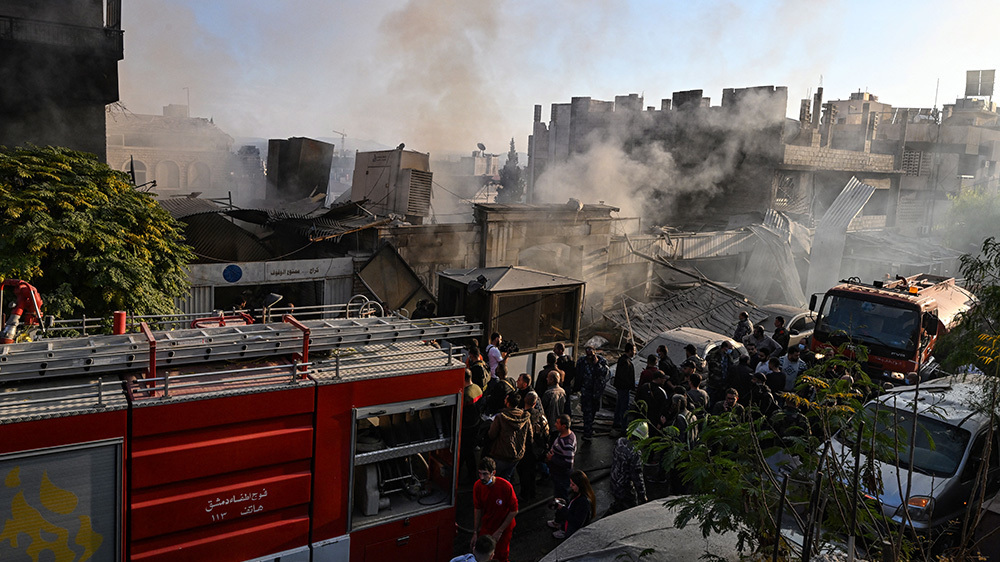
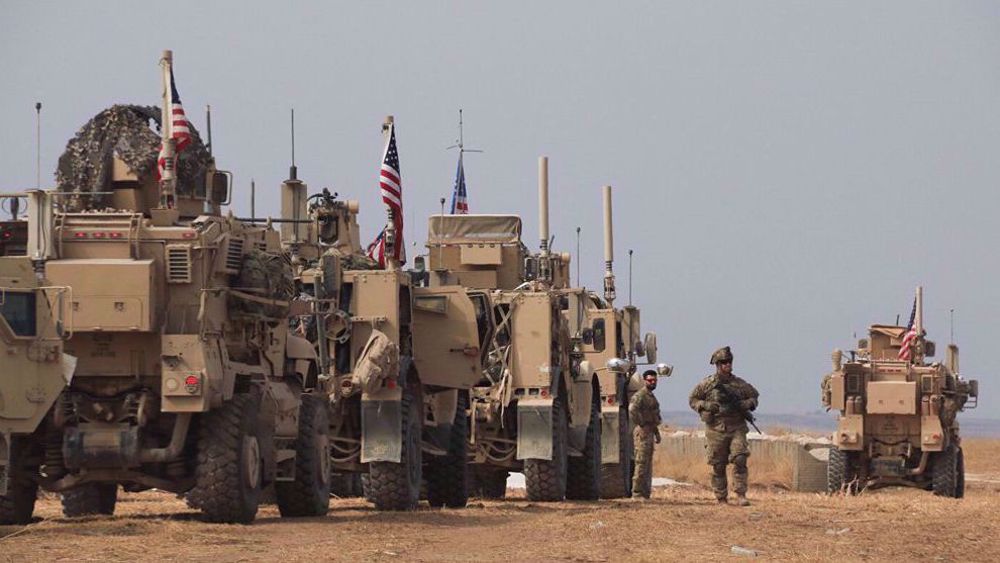



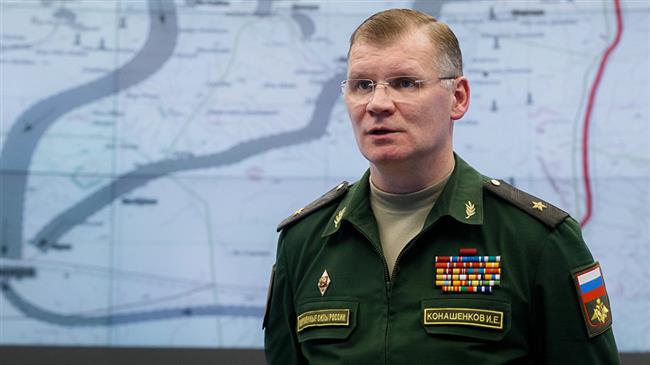

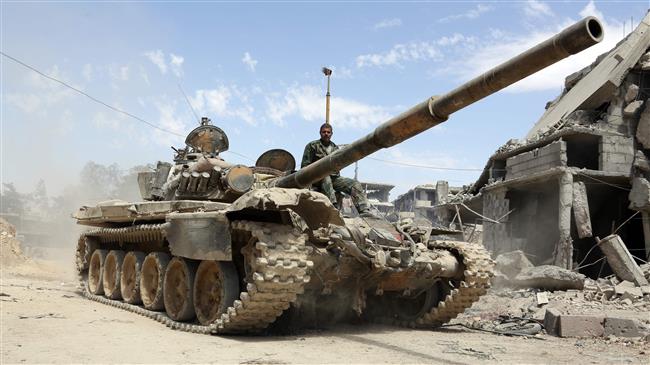



 This makes it easy to access the Press TV website
This makes it easy to access the Press TV website